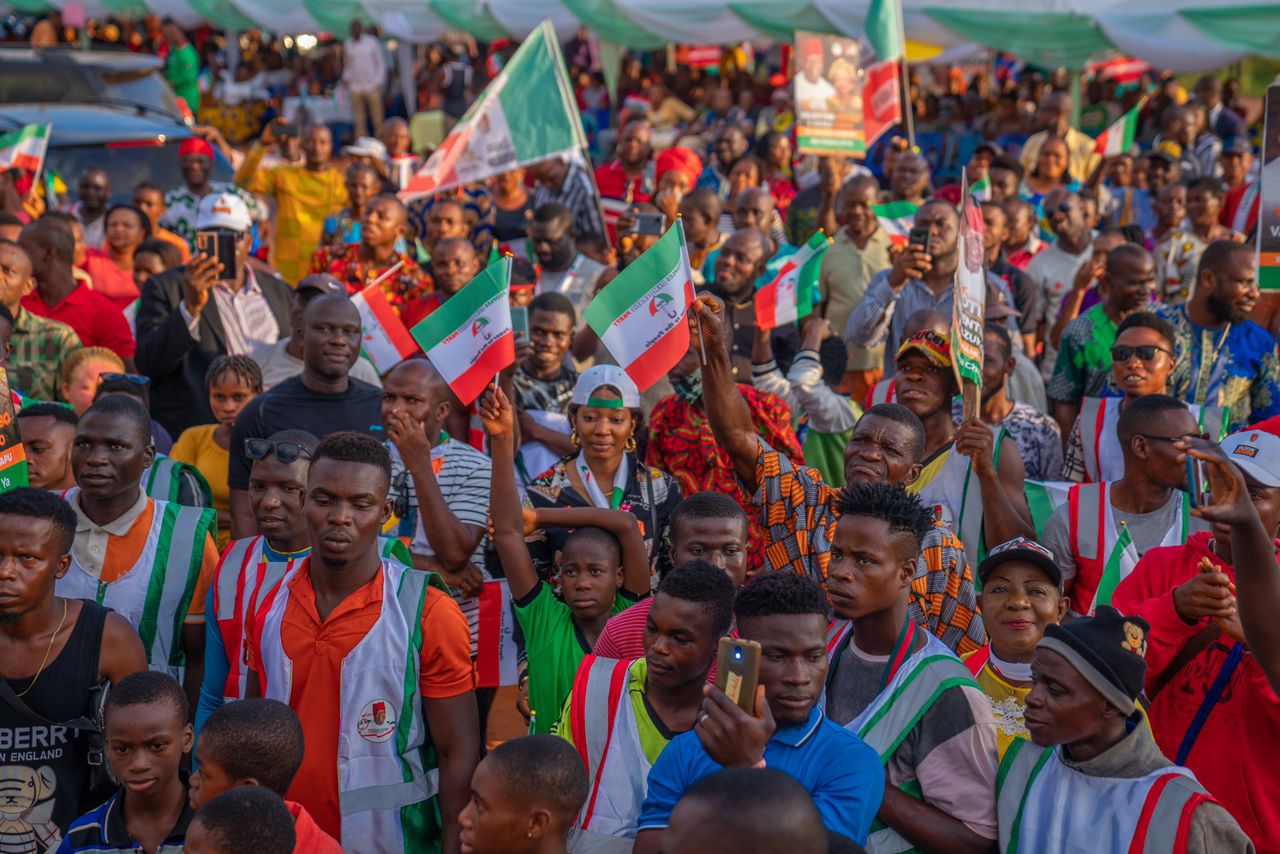Elections: Political parties manifestos not gender specific – Plan International
Charles Usie, Country Director, Plan International Nigeria, has stated that political party manifestos are not reflective enough of gender specific or child development-focused issues. Usie said their analysis of the parties’ manifestos based on the four pillars of development; protection, survival and participation revealed this reality. According to him, a particular case in point was […]

Supporters at the PDP governorship campaign in Anambra
Charles Usie, Country Director, Plan International Nigeria, has stated that political party manifestos are not reflective enough of gender specific or child development-focused issues.
Usie said their analysis of the parties’ manifestos based on the four pillars of development; protection, survival and participation revealed this reality.
According to him, a particular case in point was the rejection of the gender equality bills by the National Assembly which drew global attention to Nigeria and gave rise to protests.
In a statement, the organisation frowned at the poor reflection of girls and women issues in the manifestoes of political parties ahead of the 2023 general elections.
Alaafin of Oyo oldest palace worker dies at 120
Kano LP gov’ship candidate confirms meeting Tinubu, mum on defection
It said: “The results of a survey carried out by the organisation published in a position paper indicated that despite the fact that women constitute 49.47 percent of the Nigerian population, and 47.50 per cent of registered voters, issues relating to them are completely absent in many parties’ manifestoes and where they are mentioned. They appear as footnotes.
“While the parties appeared to have mentioned women, children, girls, and youth issues in their manifestos, the details of these raise questions about their understanding of the issues or the level of importance they attach to them, thus leaving a foggy mirroring of their issues.”
The organization said it had become imperative that all political parties prioritised meaningful and active participation and engagement of women, youths, and young girls in the governance process as they constitute about 50 percent of the populace.
“In the few days remaining before the 2023 general elections, the political parties and their candidates across the country should reconnect with the electorate, especially adolescent girls, women, people living with disabilities and all minorities and articulate in clear and unambiguous terms their programme in response to their peculiar issues,” Usie.
